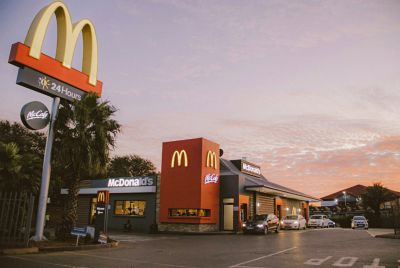Resilient retailers and thriving film industry drive unexpected growth in British economy in April
The British economy defied expectations by experiencing a slight growth in April, driven by the resilience of retailers and the thriving film industry.

Despite the setbacks in the manufacturing and construction industries, the British economy had a strong outing in April. According to the Office for National Statistics (ONS), the GDP rose by 0.2 per cent, owing to the flourishing film sector and the performance of retailers. This was a pleasant surprise as recent labour market and inflation data favoured expectations of higher interest rates from the Bank of England.
Revealed on Wednesday, June 14, the figures confirm business surveys that had predicted sluggish activity but not a full-blown recession, as anticipated just a few months ago. The economy only expanded by 0.1 per cent in the three months before April, according to the British Chambers of Commerce (BCC), signalling a rather slow growth.
Chief UK economist at Consultancy Pantheon Macroeconomics, Samuel Tombs, forecasted that there will not be any significant difference between the GDP in the first and second quarters. Tombs also spoke about the impact of the ongoing public sector strikes and the missed working day due to the King's coronation on GDP in May, estimating a 0.2 per cent point loss.
During April, when the junior doctors' strike took place over four days, the health sector acted as the biggest obstacle to development, according to the ONS. In response to the released figures, Finance Minister Jeremy Hunt assured that the government would continue its objective of halving inflation this year.
The ONS stated that when comparing the GDP to pre-pandemic levels, it was 0.3 per cent higher in April than it was in February 2020. The production of services increased by 0.3 per cent from one month to the next, with the wholesale and retail trade acting as the main engine of expansion.
According to ONS, the information and communications sector was significantly boosted by the film and television business. The report also showed an unexpected 0.6 per cent contraction in the construction industry and a 0.3 per cent decline in industrial output.
Jeremy Batstone-Carr, European strategist at Raymond James Investment Services said in order to prevent a recession, "a Herculean effort" will still be required. The UK economy started the most recent quarter stronger than it did the prior quarter.
Responding to a question on whether the GDP increase means the UK has escaped recession, Batstone-Carr believes it would be premature to pronounce the situation "all clear". According to him, this is because the Bank of England is ready to keep raising rates to tackle inflation.
The European strategist at Raymond James Investment Services emphasised the need for a substantial effort to avoid a recession. He attested that the 0.2 per cent GDP growth in April indicated a stronger start to the quarter compared to the previous one, raising the chances of resilient economic activity that could prevent a recession.
However, Batstone-Carr cautioned that the Bank of England is prepared to continue raising interest rates to tackle persistently high inflation, which remains a concern. Hence, prematurely declaring the situation as "all clear" would be premature.
Batstone-Carr noted that April saw fewer strikes and a resumption of an upward trend in the retail sector, following the decline in economic activity experienced in March due to labour unrest. Additionally, manufacturing and industrial production remained robust, buoyed by increased mining activity, gas output and vehicle production after a strong first quarter.
While the UK economy has displayed greater resilience compared to the Euro Area, Batstone-Carr advised maintaining caution. As the ongoing inflation continues to suppress consumer spending, rising mortgage rates further strain consumers' finances. Overcoming these persistent pressures will require a Herculean effort to prevent a recession, he concluded.
© Copyright IBTimes 2025. All rights reserved.






















